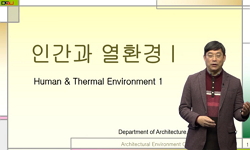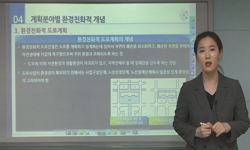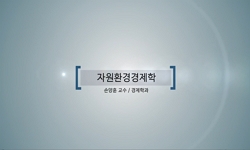This article purports to explore how the recent local environmental governance has changed in Sweden. The research analyzes three programs: Local Agenda 21 (LA21), Local Investment Program (LIP) for 'Green Growth' and Climate Investment Program (Klimp...
http://chineseinput.net/에서 pinyin(병음)방식으로 중국어를 변환할 수 있습니다.
변환된 중국어를 복사하여 사용하시면 됩니다.
- 中文 을 입력하시려면 zhongwen을 입력하시고 space를누르시면됩니다.
- 北京 을 입력하시려면 beijing을 입력하시고 space를 누르시면 됩니다.

스웨덴 지역환경정책 거버넌스의 변화와 특징 연구 -지방의제21(LA21), 녹색성장 지역투자프로그램(LIP), 기후변화투자프로그램(Klimp)의 사례- = A Study of Shifts in Swedish Local Environmental Governance : A Case Study of LA21, LIP and Klimp
한글로보기https://www.riss.kr/link?id=A104991053
-
저자
최희경 (경북대학교)
- 발행기관
- 학술지명
- 권호사항
-
발행연도
2013
-
작성언어
Korean
-
주제어
지역 거버넌스 ; 환경 ; 스웨덴 ; 녹색성장 ; 지방의제21 ; LIP ; local governance ; environment ; Sweden ; Green Growth ; LA21 ; LIP
-
등재정보
KCI등재
-
자료형태
학술저널
-
수록면
25-53(29쪽)
-
KCI 피인용횟수
5
- DOI식별코드
- 제공처
-
0
상세조회 -
0
다운로드
부가정보
다국어 초록 (Multilingual Abstract)
The results of the analysis indicate: (1) The traditional plural participatory governance emphasized in LA21 has shifted to 'new environmental governance', which centers the technological industry, specialized interests and the government in local green networks with LIP and Klimp. This feature reflects the fact that most financial support under the two programs focused on the field of environment-friendly technology in energy and transport. (2) The 'new environmental governance' has counteractively stimulated academic and civic efforts to recruit 'missing citizens' for more democratic local governance. (3) LIP and Klimp have changed the existing decentralized and bottom-up policy process into centralized and top-down one, employing a financially competitive mechanism, which was unfamiliar to Swedish public organizations when LIP started. (4) The Swedish government, academia and society as a whole have attempted to create or develop voluntary networks at the local level and foster learning systems to share information and knowledge from different municipalities' and stakeholders' experiences, when designing a new program.
This article purports to explore how the recent local environmental governance has changed in Sweden. The research analyzes three programs: Local Agenda 21 (LA21), Local Investment Program (LIP) for 'Green Growth' and Climate Investment Program (Klimp). The study examines literature on sustainable development and environmental policy mainly in Nordic countries as well as official and academic reviews on the three programs. Interviews with local officials were also used.
The results of the analysis indicate: (1) The traditional plural participatory governance emphasized in LA21 has shifted to 'new environmental governance', which centers the technological industry, specialized interests and the government in local green networks with LIP and Klimp. This feature reflects the fact that most financial support under the two programs focused on the field of environment-friendly technology in energy and transport. (2) The 'new environmental governance' has counteractively stimulated academic and civic efforts to recruit 'missing citizens' for more democratic local governance. (3) LIP and Klimp have changed the existing decentralized and bottom-up policy process into centralized and top-down one, employing a financially competitive mechanism, which was unfamiliar to Swedish public organizations when LIP started. (4) The Swedish government, academia and society as a whole have attempted to create or develop voluntary networks at the local level and foster learning systems to share information and knowledge from different municipalities' and stakeholders' experiences, when designing a new program.
국문 초록 (Abstract)
자율성과 독립성의 전통이 강한 스웨덴 지자체들은 최근 세 환경정책을 연이어 거치면서 중앙정부로부터의 하향적 집권적 리더십과 정책운영 방식을 경험하였다. 또한 기존의 다원적이고 민주적인 참여 지향성에서 산업계를 비롯한 특수화․조직화된 이해관계 중심으로 네트워크 성격이 전환되었으며 구체적인 문제 해결 중심의 미시적 효과성이 중시되었다.
이른바 신환경거버넌스라고 불리는 산업계와 전문화된 이해관계자 중심의 거버넌스는 에너지와 교통 분야의 친환경 기술에 대한 대규모 투자가 핵심인데 이는 재정지출의 효과성을 추구하는 정부의 현실적인 전략이라는 측면도 있었다. 신환경거버넌스에 대해 시민참여와 전통 민주주의, 그리고 사회의 근본 체계 역량과 관련된 이른바 거시적 효과성을 지향하는 거버넌스가 손상된다는 우려와 논쟁이 높아지고 있다.
스웨덴의 지역 환경정책 사례는 특정 프로그램을 논의할 때 프로그램의 내용이나 성과 이상으로 지역사회 네트워크 형성과 개발에 관심을 둔다는 점, 경험을 통한 지식 창출과 그에 대한 상호학습 및 지식공유를 중시한다는 점, 정책 기조 설정에는 중앙정부가 강력한 리더십을 발휘하지만 구체적인 전략 수립과 운영에서는 여전히 지자체의 자율권을 보장한다는 점, 정책과정에 시민 일반과 폭넓은 이해관계자를 참여시키고 소통을 드높이기 위한 노력이 행해지고 있다는 등의 특징을 나타내고 있는데, 이는 우리나라 관련 정책에도 시사하는 바가 크다.
본 연구는 최근 20년간 스웨덴 지방자치단체가 경험한 주요 환경정책을 검토하여 거버넌스의 특징이 어떻게 변화하였는지 분석하고 그에 따른 시사점을 도출한 것이다. 구체적인 사례로 지...
본 연구는 최근 20년간 스웨덴 지방자치단체가 경험한 주요 환경정책을 검토하여 거버넌스의 특징이 어떻게 변화하였는지 분석하고 그에 따른 시사점을 도출한 것이다. 구체적인 사례로 지방의제21(LA21), 녹색성장 지역투자프로그램(LIP), 기후변화투자프로그램(Klimp)을 선정하고 이에 관한 정부 보고서, 유럽연합과 OECD 보고서, 학술문헌, 그리고 스웨덴의 환경정책 일반에 관한 문헌 조사를 기본으로 하였다. 인구 900만의 스웨덴에서 특정 프로그램에 대한, 특히 영문 자료에는 한계가 있지만 현지조사를 통해 최대한 문헌을 확보하고 지방자치단체 공무원들의 면담내용을 보완적으로 활용하였다.
자율성과 독립성의 전통이 강한 스웨덴 지자체들은 최근 세 환경정책을 연이어 거치면서 중앙정부로부터의 하향적 집권적 리더십과 정책운영 방식을 경험하였다. 또한 기존의 다원적이고 민주적인 참여 지향성에서 산업계를 비롯한 특수화․조직화된 이해관계 중심으로 네트워크 성격이 전환되었으며 구체적인 문제 해결 중심의 미시적 효과성이 중시되었다.
이른바 신환경거버넌스라고 불리는 산업계와 전문화된 이해관계자 중심의 거버넌스는 에너지와 교통 분야의 친환경 기술에 대한 대규모 투자가 핵심인데 이는 재정지출의 효과성을 추구하는 정부의 현실적인 전략이라는 측면도 있었다. 신환경거버넌스에 대해 시민참여와 전통 민주주의, 그리고 사회의 근본 체계 역량과 관련된 이른바 거시적 효과성을 지향하는 거버넌스가 손상된다는 우려와 논쟁이 높아지고 있다.
스웨덴의 지역 환경정책 사례는 특정 프로그램을 논의할 때 프로그램의 내용이나 성과 이상으로 지역사회 네트워크 형성과 개발에 관심을 둔다는 점, 경험을 통한 지식 창출과 그에 대한 상호학습 및 지식공유를 중시한다는 점, 정책 기조 설정에는 중앙정부가 강력한 리더십을 발휘하지만 구체적인 전략 수립과 운영에서는 여전히 지자체의 자율권을 보장한다는 점, 정책과정에 시민 일반과 폭넓은 이해관계자를 참여시키고 소통을 드높이기 위한 노력이 행해지고 있다는 등의 특징을 나타내고 있는데, 이는 우리나라 관련 정책에도 시사하는 바가 크다.
참고문헌 (Reference)
1 기타오카 다카요시, "복지강국 스웨덴, 경쟁력의 비밀" 위즈덤하우스 2012
2 "낙동강 비리 ... 공무원․건설사 임직원 적발"
3 최희경, "건강증진을 위한 친환경거버넌스의 설계:스웨덴지방자치단체사례를 중심으로" 한국정부학회 24 (24): 729-754, 2012
4 "World Value Survey"
5 Stockholm Resilience Center, "What is Resilience?"
6 UNESCAP, "What is Good Governance?" UNESCAP
7 Rhodes, R. A. W., "Understanding Governance" Open University Press 1997
8 Huber, Joseph., "Towards Industrial Ecology: Sustainable Development as a concept of Ecological Modernization" 2 (2): 269-285, 2000
9 Janssen, M. A., "Toward a Network Perspective of the Study of Resilience in Social-Ecological Systems" 11 (11): 2006
10 Eckerberg, K., "The Use of Local Sustainability Indicators: Case Studies in two Swedish Municipalities" 8 (8): 591-614, 2003
1 기타오카 다카요시, "복지강국 스웨덴, 경쟁력의 비밀" 위즈덤하우스 2012
2 "낙동강 비리 ... 공무원․건설사 임직원 적발"
3 최희경, "건강증진을 위한 친환경거버넌스의 설계:스웨덴지방자치단체사례를 중심으로" 한국정부학회 24 (24): 729-754, 2012
4 "World Value Survey"
5 Stockholm Resilience Center, "What is Resilience?"
6 UNESCAP, "What is Good Governance?" UNESCAP
7 Rhodes, R. A. W., "Understanding Governance" Open University Press 1997
8 Huber, Joseph., "Towards Industrial Ecology: Sustainable Development as a concept of Ecological Modernization" 2 (2): 269-285, 2000
9 Janssen, M. A., "Toward a Network Perspective of the Study of Resilience in Social-Ecological Systems" 11 (11): 2006
10 Eckerberg, K., "The Use of Local Sustainability Indicators: Case Studies in two Swedish Municipalities" 8 (8): 591-614, 2003
11 BRG(Business Region Göteborg), "The Region of Sustainable Growth" BRG 2010
12 Midttun, Atle, "The Nordic model: Is it Sustainable and Exportable?" University of Oslo 2011
13 Trägårdh, Lars, "The Mysteries of a Pippi Longstocking Economy: Radical Individualism in the Land of Social Trust" 2011
14 Perry, B., "The Multi-level Governance of Science Policy in England" 41 (41): 1051-1067, 2007
15 Koch, M., "The Earth Summit Agreements: A Guide and Assessment" Earthscan 97-157, 1993
16 Germanwatch, "The Climate Change Performance Index 2012"
17 Edström, C., "Swedish Municipalities Work with Agenda 21:A Survey over Time. Stockholm: Committee for Agenda 21 and Habitat" Ministry of Environment 2002
18 Ministry of Sustainable Development Sweden, "Sweden's fourth national communication on climate change. Ds 2005:55" Ministry of Sustainable Development Sweden 2005
19 Lundqvist, Lennart J., "Sweden and Ecological Governance" Manchester University Press 2004
20 FORMAS (The Swedish Research Council), "Sustainable Urban Development in Sweden" Formas 2011
21 Adger, W. Neil, "Sustainability: exploring the processes and outcomes of governance, In Governing Sustainability" Cambridge University Press 3-31, 2009
22 안영도, "Strategic CSR" Kosif & Konrad Adenaur Stiftung 2012
23 Delmas, M. A., "Research opportunities in the area of governance for sustainable environment, In Governance for the Environment" Cambridge University Press 221-238, 2009
24 Eckerberg, K., "Remaking the Welfare State: Swedish urban planning and policy-making in the 1990s" Gower 1995
25 Rowe, G., "Public participation methods: a framework for evaluation" 25 : 3-29, 2000
26 ARE(Federal Office for Spatial Development), "Promotion of Local Agenda 21 in Europe" ARE(Federal Office for Spatial Development, Switzerland Government) 2005
27 John, P., "Local Governance in Western Europe" Sage Publications 2001
28 Hägerhäll, B., "Local Democracy and the Future: The Swedish Model" Kluwer Academic Publishers 49-82, 2002
29 Norland, I.T, "Local Agenda 21 in the Nordic Countries - National Strategies and Local Status" Center for Development and the Environment, University of Oslo 2003
30 Rowe, G., "LIP"
31 SEPA(Swedish Environmental Protection Agency)., "Klimp"
32 Delmas, M.A., "Introduction: new perspectives on governance for sustainable development, In Governance for the Environment" Cambridge University Press 3-11, 2009
33 Baker, S., "Introduction: in Pursuit of Sustainable Development at the Sub-National Level: The 'New' Governance Agenda, In In Pursuit of Sustainable Development: New Governance Practices at the Sub-National Level in Europe" Routledge 1-25, 2008
34 Baker, S, "In Pursuit of Sustainable Development: New Governance Practices at the Sub-National Level in Europe" Routledge 2008
35 OECD., "Improving Policy Coherence and Integration for Sustainable Development: A Checklist" OECD 2002
36 Eckerberg, K., "Implementing agenda 21 in local government: The Swedish experience" 3 (3): 333-347, 1998
37 Eckerberg, K., "Implementing LA21 in Europe: New Initiatives for Sustainable Communities" ProSus 241-261, 2001
38 Lafferty, W. M., "Implementing LA21 in Europe : New Initiatives for Sustainable Communities" ProSus 2001
39 Lundqvist, Lennart J., "Implementation from Above: The Ecology of Power in Sweden's Environmental Governance" 14 (14): 319-337, 2001
40 Beatly, T., "Green Urbanism: Learning from European Cities" Island Press 2000
41 Evans, Bob., "Governing Sustainable Cities" Earthscan 2007
42 Burgess, J, "Governing Sustainability, In Governing Sustainability" Cambridge University Press 159-190, 2009
43 Adger, W. Neil, "Governing Sustainability" Cambridge University Press 2009
44 Khanna, M., "Governance for the Environment, In Governance for the Environment" Cambridge University Press 144-182, 2009
45 Young, O. R., "Governance for Sustainable Development in a World of RisingInterdependencies, In Governance for the Environment: New Perspectives" Cambridge University Press 12-40, 2009
46 Baker, S, "Governance for Sustainable Development in Sweden: The Experience of the Local Investment Programme" 12 (12): 325-342, 2007
47 Lebel, L., "Governance and the Capacity to Manage Resilience in Regional Social-Ecological Systems" 11 (11): 2006
48 OECD, "Good Practices in the National Sustainable Development Strategies of OECD Countries" OECD 2006
49 Christie, I., "From Here to Sustainability: The Politics of Real World" Earthscan 2001
50 Marks, G, "European integration from the 1980s: state centric versus multi-level governance" 34 : 341-378, 1996
51 Lemos, M.C., "Environmental Governance and Political Science, In Governance for the Environment" Cambridge University Press 69-97, 2009
52 Government of Sweden, "Ecological Sustainability" Government Communication 13-, 1998
53 Peters, B.G, "Developments in Intergovernmental Relations: Towards Multi-level Governance" 29 (29): 131-135, 2001
54 EU., "Country Profile 2010: Sweden (Monitoring Member States' policy developments on resource-efficiency/environment in Europe 2020)" EU 2012
55 Lundqvist, Lennart J., "Constructing Stakeholders by Allocating Responsibility: An Analysis of Key Environmental and Climate Policy Proposals in Sweden 1990-2010" 2011
56 Baker, S., "Conclusion: Combining Old and New Governance in Pursuit of Sustainable Development, In In Pursuit of Sustainable Development: New Governance Practices at the Sub- National Level in Europe" Routledge 208-228, 2008
57 Dobson, A., "Citizen, Citizenship and Governance for Sustainability, In Governing Sustainability" Cambridge University Press: 125-141, 2009
58 Berglund, C, "Citizen and Consumer: The Dual Role of Individuals in Environmental Policy. Luleå University of Technology: Sharp Research Programme" 2006
59 Durose, C., "Changing Local Governance, Changing Citizens: Introduction, In Changing Local Governance" Policy Press 1-12, 2009
60 OECD., "Better Regulations in Europe: Sweden" OECD 2010
61 "BRG(Business Region Göteborg)"
62 EC., "Assessment and guidance for the implementation of EU waste legislation in Member States: Awareness Raising Event Related to the new Waste Framework Directive (2008/98/EC) in Sweden" EC 2010
63 "'소비자 73%’ 윤리적 소비하겠다"
64 "'MB 임기 내 완성’ 압박이 4대강 담합 불러"
동일학술지(권/호) 다른 논문
-
거주지역간 차이가 소득과 삶의 질에 미치는 동태적 변화패턴 분석 -노무현 정부와 이명박 정부 시기의 비교를 중심으로-
- 한국거버넌스학회
- 임채홍
- 2013
- KCI등재
-
- 한국거버넌스학회
- 한인섭
- 2013
- KCI등재
-
- 한국거버넌스학회
- 김미연
- 2013
- KCI등재
-
- 한국거버넌스학회
- 장윤경
- 2013
- KCI등재
분석정보
인용정보 인용지수 설명보기
학술지 이력
| 연월일 | 이력구분 | 이력상세 | 등재구분 |
|---|---|---|---|
| 2028 | 평가예정 | 재인증평가 신청대상 (재인증) | |
| 2022-01-01 | 평가 | 등재학술지 유지 (재인증) |  |
| 2019-01-01 | 평가 | 등재학술지 유지 (계속평가) |  |
| 2016-01-01 | 평가 | 등재학술지 선정 (계속평가) |  |
| 2015-12-01 | 평가 | 등재후보로 하락 (기타) |  |
| 2011-01-01 | 평가 | 등재학술지 유지 (등재유지) |  |
| 2008-01-01 | 평가 | 등재학술지 선정 (등재후보2차) |  |
| 2007-01-01 | 평가 | 등재후보 1차 PASS (등재후보1차) |  |
| 2005-01-01 | 평가 | 등재후보학술지 선정 (신규평가) |  |
학술지 인용정보
| 기준연도 | WOS-KCI 통합IF(2년) | KCIF(2년) | KCIF(3년) |
|---|---|---|---|
| 2016 | 0.85 | 0.85 | 0.98 |
| KCIF(4년) | KCIF(5년) | 중심성지수(3년) | 즉시성지수 |
| 1.01 | 1.01 | 1.111 | 0 |




 KCI
KCI KISS
KISS






